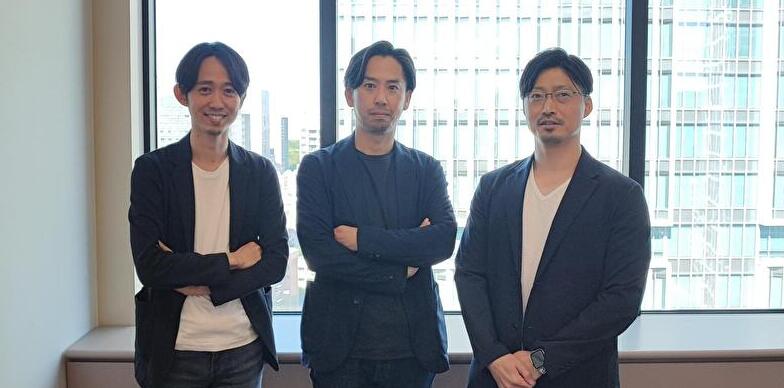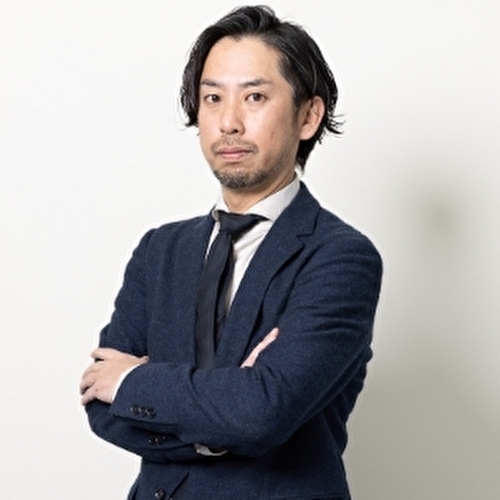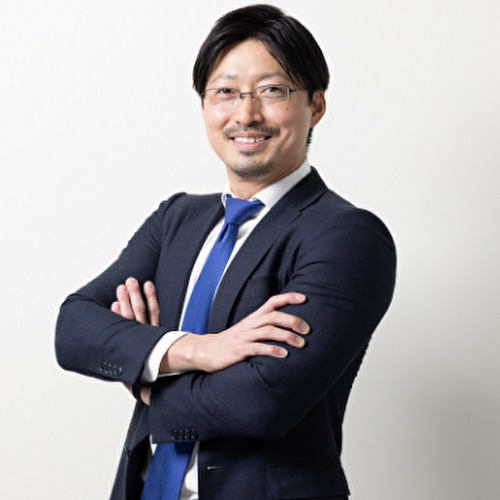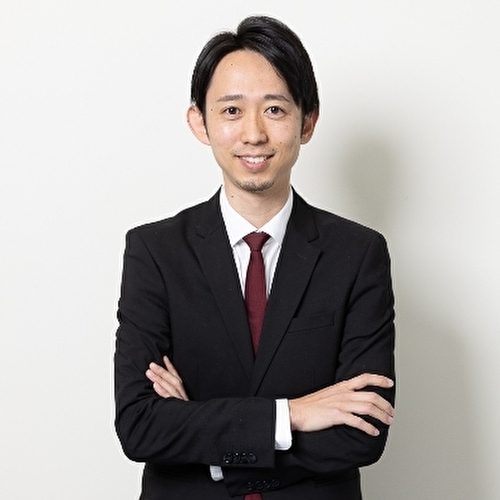What is executive search? [Roundtable discussion with Japanese Senior Consultants]
East West Consulting is a leading Japanese executive search firm with a 36-year track record. We have consultants from a variety of backgrounds, including age, gender and nationality.
Among them, we asked a group of Japanese senior consultants who are active with their unique backgrounds and thoughts to talk about what “executive search” means to them.
About executive search:
Moderator: Thank you for joining us today. First of all, could you tell me what kind of work is ‘Executive search’?
Tamura: Executive search is a kind of so-called recruitment service, but it is characterized by the fact that we approach and talk to candidates outside the obvious layer. This is not just about the candidates, but clients. There are often cases where we make suggestions in the client’s conversation, not only for the positions that have emerged, but also from us.
Yamamoto: It is not always the case that the client’s idea is manifested as a job offer and candidates are clear about what they want to do. Sometimes we suggest to the client what kind of people they should hire to grow their business and what kind of work they should do now to develop candidates’ career.
We believe that the value of our intervention lies in bringing the two companies together in this way.
Tamura: I can’t give you specific search methods, but there are many different search methods, and they differ from person to person. While external databases are widely mainstream, we have our own database and have accumulated the know-how to approach people who are not present in the job market and who are not active in changing jobs. It is a world where the network, experience and track record of consultants, who are known as headhunters, really counts.
Takahata: The difference between executive search and general recruitment is that we actively search for and scout for people in the core positions of a company, not only among the obvious candidates, but also among potential candidates, and match them with the right person for the job.
Handling CxO-class confidential positions
Takahata: I think that one of the characteristics of executive search is that we receive requests for high-class and confidential positions such as CxO positions, etc. CxO class recruitment is often only disclosed to a limited number of members within the client’s company, and therefore job postings are not often made public. Such projects are based on a relationship of trust between us and the client.
In some cases, proposals and decisions are made in competition with other companies. In such cases, the client chooses to work with an executive search firm that is likely to be committed.
Especially for important positions, requesting more than one executive search firm increases the risk of information being leaked to the outside world, and also causes confusion when various firms contact the same candidate. Therefore, clients prefer to work only with specific, reputable firms rather than many.
Also, if there is a position in the CxO that is not available in the organization, we will make a proposal if we think there is a potential need for the person to grow.
Yamamoto: If we don’t understand the client’s business and its future direction, we can’t make proposals in the first place. For this reason, we are constantly updating our information on the market environment to which the client belongs through daily communication. It is important to accumulate knowledge that makes the client think you have good intuition and know what you are talking about. This leads to a relationship of trust and allows us to be entrusted with CxO-class projects.
By repeating this cycle, you will be able to make proactive proposals, such as “Isn’t this the kind of person you need right now?
Career change in the executive class
Moderator: If you actually contact a candidate and say, ‘I’m in executive search’, do they listen positively to you?
Tamura: When I first started this job, I thought it would be difficult to motivate people because I was approaching people who were not particularly looking for a job at the moment, but what I have found is that surprisingly, everyone is open-minded and willing to consider the next one if the opportunity arises. We always try to provide the right opportunities, especially at the right time.
Especially when executives are looking for their next career move, positions in the same or similar industries are limited and pinpointed. It’s not something you can easily look for, so people want information as and when it’s available, even if they are not looking for a new job. This is particularly true in the foreign sector. Even people who are not registered on jobseeker websites are interested in talking to us if they are interested. In that sense, I think it’s a necessary business. If you want to make the most of your career, timing is important, and by communicating regularly with headhunters, you can create a situation where you are the first to be contacted when a job that suits you becomes available.
Yamamoto: If you are a young person changing jobs, for example, you may want to use the social skills you have developed in sales to challenge yourself in other industries or occupations.
On the other hand, those with a career may consider converting to the next job, making full use of the experience they have gained. In this case, timing and job opportunities tend to be limited.
Checking down to culture fit
Takahata: The goal of our work is not to get people to join our company, but to get them to perform well after they join. There are cases where a person’s career may be perfect, but they may not be able to fully demonstrate their performance because their culture and values do not match with ours. For example, there are companies that have a top-down approach and companies that have a middle-up approach, and if a person who was active in the middle-up approach goes to a top-down company, he or she may find that the two are completely opposite and do not match.
I think it is very important to understand the client and the candidate well, and not just judge by skill matching, in order to prevent a mismatch.
Yamamoto: Yes, the definition of a good person differs from company to company. In a vertically divided organization, people who are good at coordinating and managing things steadily in response to commands and orders tend to be excellent, but in an environment with a flat organizational structure, the driving force that spontaneously moves things forward is valued.
Candidate’s accumulated experience has fostered these characteristics, so we must first understand these characteristics and then match them with the companies that need them.
Takahata: Candidates also need to understand what their future career vision is and what their values are by listening to them, otherwise there will be an unmatch after they join the company. Sometimes I can’t introduce someone even if I get the intention to apply, or I don’t think I should do it for this person. Some people prefer not to move because they can’t see the image of success.
Takahata: The goal of our work is not to get them to join the company, but how active they can be after they join is important. In terms of their background, they may be perfect, but the culture may not be right for them. Culture is especially important for members of the upper management. There are cases where people have the right abilities, but because they don’t fit the culture, they can’t demonstrate their abilities at all. For example, in a large, vertically-integrated company, there are people who are good at internal coordination and go to higher positions, but there are also people who are very passive and cannot play an active role even if they go to a flat organization.
There are companies that are top-down and companies that are middle-up, and if someone who was active in a middle-up company goes to a top-down company, they will be the complete opposite and will not fit in.
Therefore, people who grew up in this culture don’t fit in, which can be understood by those who understand the client and the candidate well, as a professional. And simply saying, “What about this Candidate with XXX experience?” and introduce someone who doesn’t match the culture simply because they match the job requirements, the client will think you don’t understand and the relationship of trust will be damaged.
Yamamoto: Yes, the definition of someone who is excellent in company A and someone who is excellent in company B can be completely different. In a vertical organization, a person who is good at receiving commands and orders and has good coordination skills is considered excellent, but in a venture company it may be different. In a venture company, however, it’s different.
Takahata: Candidates also have their own values about what they want to do in the future, and if we don’t listen to them and understand them, there will be an unmatch after they join the company. Even if we get the intention to apply, we can’t introduce them, and sometimes we think we shouldn’t do it for this person. Some people prefer not to move because they cannot see the image of success.
Understanding clients from both organizational and people perspectives
Moderator: How have you acquired such an ability to understand the company?
Takahata: I think it’s about having an interest and increasing the frequency of communication with clients.
The contact person for clients is often from the HR department, but I also try to have contacts with people from other departments, such as interviewing with the manager of the company to which the candidates will be assigned before conducting a search, or sitting in on interviews with candidates.
Tamura: By working in the same industry for a long time, your knowledge of that industry will deepen. Through talking to many people in the same industry, you can accumulate information from case studies of other companies in the same industry, such as how a person with this kind of background would be a good fit for this position, or how they have successfully hired such a person.
Yamamoto: In any case, it is important to come into contact with a lot of different information. As you repeatedly collect information on the type of people working at this company, you will accumulate know-how on the type of people who are active in each industry, service content, business scale and business phase. We believe that this enables us to acquire a sense of targeted search. I also think it is important to look at both sides of the client and the candidate. If you are only exposed to one side, there is a risk of matching based only on superficial numbers and text. Understanding the transition of candidate’s career, understanding the client’s history and current situation, I think that if you try to match without that, the substance will be diluted.
Takahata: Also, with such a method, the person in charge on the company side can understand the company, but cannot make a concrete proposal for the candidate, saying, “In other words, this is the kind of person I’m talking about”. It gives the impression of one-sidedness. You need to understand specifically what kind of people are outside the company and how they fit in.
Differences between executive search and headhunting
Moderator: For those who are changing jobs, the term ‘headhunting’ may be familiar, while some may have never heard of ‘executive search’. What are the differences between the two?
Takahata: I don’t think there is a clear definition of headhunting, but I think there is a strong impression that headhunting is a ‘drawn-out’ process.
In headhunting in particular, the client has a target of personnel they wish to recruit, and the headhunter acts as the client’s representative and calls on each and every one of them. Executive search is a little more comprehensive than that, and I think it also refers to active search in general, including hearing from the client about their personnel requirements and then conducting our own search and scouting.
Yamamoto: I get the impression that the term ‘executive search’ is becoming more widespread these days.
To gain a relationship of trust
Moderator: What do you consider important in executive search work?
Tamura: I believe that we must not become complacent, and that we must do things while thinking about them. I don’t run the business myself, and the main actor is always the customer, client or candidate. I also need to understand the company, and I think I have to keep updating my information. I’ve seen client companies and what I thought would be a good fit for them five years ago was common knowledge, but it’s quite common that things have changed somewhat now. You don’t know unless you meet a lot of people on an ongoing basis and update yourself. In other words, the main actor is always the customer, not me. I never play the leading role.
Takahata: I also share Tamura-san’s view that by updating information, we can produce results that exceed expectations, both for the client and for Candidate. As a result, I think we can achieve a state of ‘three-way success’. We must never do it forcefully, and we must avoid a situation where it is only for our convenience, Candidate’s convenience and the client’s convenience. No one will be happy.
Yamamoto: It’s the same for me, I have to keep updating information. The other thing is to keep the initial spirit in mind. When you get used to your job, you sometimes see it all together. For example, we look at Company A’s salespeople as the same kind of candidate, and I think this must be avoided. The important thing in this job is to see them as individuals. People are all different from each other, and companies are also different from each other, even if they are classified as the same industry, service, etc. If you look at them in terms of ‘manufacturing’ or ‘salespeople’, you will not be able to match them appropriately with a proper understanding of each individual. It is an obvious thing to do, but I always remind myself not to lose sight of the important ‘individual’ due to habituation.
Tamura: When you work, you tend to look at people by their titles or make assumptions about what people in this department of this company are like, but in reality there are many different shades of grey. In particular, annual salary is one of the barometers, and you sometimes think that because a person has a high annual salary, he or she is excellent. Ultimately, you have to look at the person in the right way, and not get too used to the job. That gives the impression that the person is not being properly evaluated. It’s also a problem that people often fall into when they get used to it.
East West Consulting is one of the longest-established Japanese executive search firms
Tamura: If you were to put it in words, the keywords would be long-established, pioneering and global.
Takahata: I think we have the longest history of any Japanese-affiliated executive search company. We have a database and know-how backed up by that. When East West started its services, Japanese companies were still in the era of lifetime employment. In such a situation, foreign companies were coming in rapidly, so we thought it would be a good business opportunity, so we started out as a global company. Japanese-affiliated companies took mid-career workers, but they were only replacing them and could not take a leap forward, so they were embedded in the seniority system.
Tamura: Nowadays, it has become commonplace for Japanese companies to take mid-career hires for management positions.
This was not the case when we started our business, and as a result our clients used to be mainly foreign-owned companies, but in recent years we have seen an increase in Japanese-owned companies.
Moderator: The company is well known due to trust, proposals and achievements. So you basically get a lot of inquiries from such recruitment companies on a trust basis.
Thank you for viewing our article.
Thanks to you, we have received many inquiries.
We would be delighted to hear from you if you are interested in or seeking a job.
Contact us.




